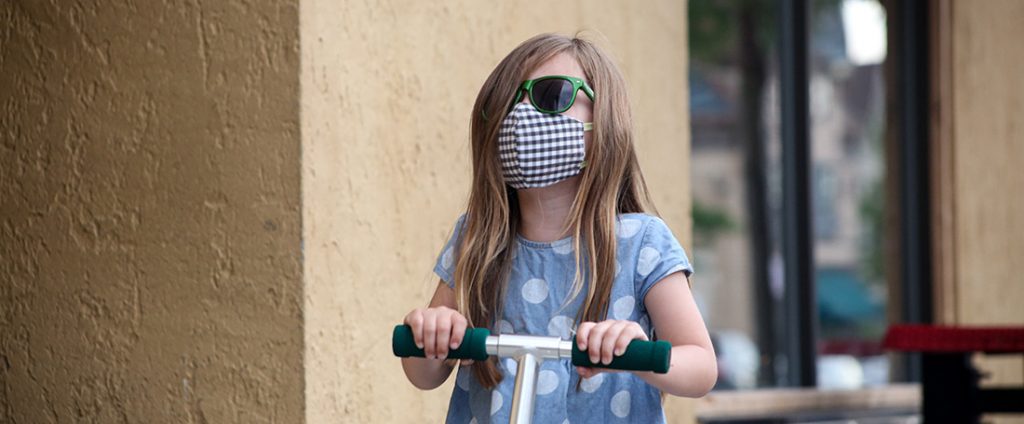
The decision to wear a mask should be yours alone
By Wayne Hoffman
Lewiston Tribune opinion writer Marty Trillhaase boldly claims that if Lt. Gov. Janice McGeachin, Rep. Heather Scott, or I were to recommend people wear coverings over their noses and mouths, it will convince skeptical Idahoans to drop their opposition to government mask mandates. Though his belief in the extent of my influence is flattering, I’m not going to do that. I strongly believe that people are best equipped to make their own health choices, not me, Marty, or the government.
I find it endlessly fascinating that statists like Marty are so convinced of the appropriateness and wisdom of the government’s ideas even though they must force compliance. So it is for every single public policy, whether it’s funding for a government park or school, or government edicts to force otherwise free people to wear a mask or buy insurance.
My friend and policy scholar Jim Payne, of Sandpoint, has often written about this phenomenon: A politician will tell us Program X is wonderful. The program is so wonderful that the government will use force — usually the threat of fines or imprisonment — to make us pay for it or participate in it. This necessarily raises a question: If Program X is so wonderful, why does the government have to force us to cooperate? Maybe because the case for voluntary participation isn’t compelling enough. Or, maybe it’s not compelling enough to us. Or maybe we have other priorities that warrant our time or money.
As it pertains to masks, government officials have done a lousy job arguing their case. Federal and state government health experts, at best, have been inconsistent, adding to people’s skepticism. Recall, as recently as March, officials were telling healthy people to not wear masks. These “experts” also famously asserted that viral transmission by asymptomatic people was “rare.” Later, they changed their minds and started advocating — even demanding — mask usage.
That flip-flopping aside, even if a compelling case for mask-wearing were made, it is impossible for the government or for me to manifest a solution and apply it singularly to an entire population. I don’t know all 1.7 million Idahoans. You don’t either. Everyone is different. What one “expert” concludes is a smart precautionary measure for some, in practice, is pure torture to others.
My reason for disobeying the government’s mask mandates is the same as it applies to all government mandates that confer “rightness” or “wrongness” to a given behavior: A mandate denies me my right to make my own decisions based on conditions and desires unique to my situation. My decision to not wear a mask is supported by other compelling evidence, which suggests that at my age and with no pre-existing conditions, my risk of dying from Covid-19 related complications is fairly low. If I were to contract Covid-19, my survival rate is about 99.9 percent. I’m willing to take my chances, knowing there are those who’d cheer my demise if I’m wrong. Nonetheless, if Marty is correct that I am a thought leader in our state, I choose to use that position to remind people that they have the absolute right to weigh the facts for themselves and to choose whether it is appropriate for their circumstances to wear a mask.
As with other mandates, my priorities are often at odds with the government. When President Barack Obama compelled Americans to buy health insurance, I was often asked, “But isn’t it a good idea to be covered by a health insurance policy?”
Perhaps. But who am I to make that choice for others? To a family that can barely afford food, it is hardly my place, or the place of politicians, to force a person to choose health insurance over the need to eat. Perhaps the family is saving for a car, which would make it easier to get to work or find a better paying job. An order to instead buy health insurance superimposes the government’s judgment for that of the family, making the objective to buy a car that much more difficult. Government doesn’t know a person’s individual situation. Nor do I. The ability to choose right from wrong — buying insurance or wearing a mask — is a positively personal one.
Moreover, a person can be both concerned about a dangerous virus and come up with her own ways to mitigate the risk to herself and others. Options might include staying home more, washing hands frequently, wearing other protective gear besides a mask, or being careful to maintain distance from strangers. The government’s prescribed solution — masking the masses — might work for some, but not others.
I subscribe to Henry David Thoreau’s viewpoint that a person should not “resign his conscience to the legislator.” If we, as individuals, do not have the freedom to make decisions, “why has every man a conscience, then?” This is an important question Thoreau asks in his essay “On the Duty of Civil Disobedience.” He continues, “I think that we should be men first, and subjects afterward. … The only obligation which I have a right to assume, is to do at any time what I think right.”
In sum, to wield the influence Marty Trillhaase asserts that I have: Choose to wear a mask, if that is right for you and the people you care about. Choose not to wear a mask if that is what your circumstances dictate, or if you believe the government has failed to prove its case regarding face coverings.
But never surrender your right to decide to others.
From idahofreedom.org